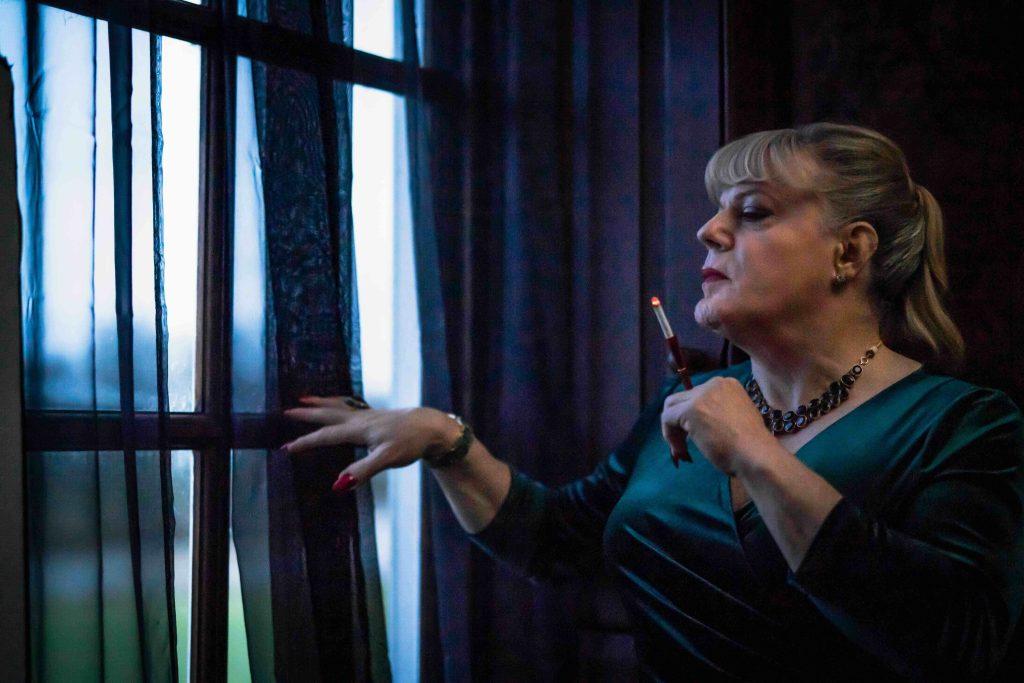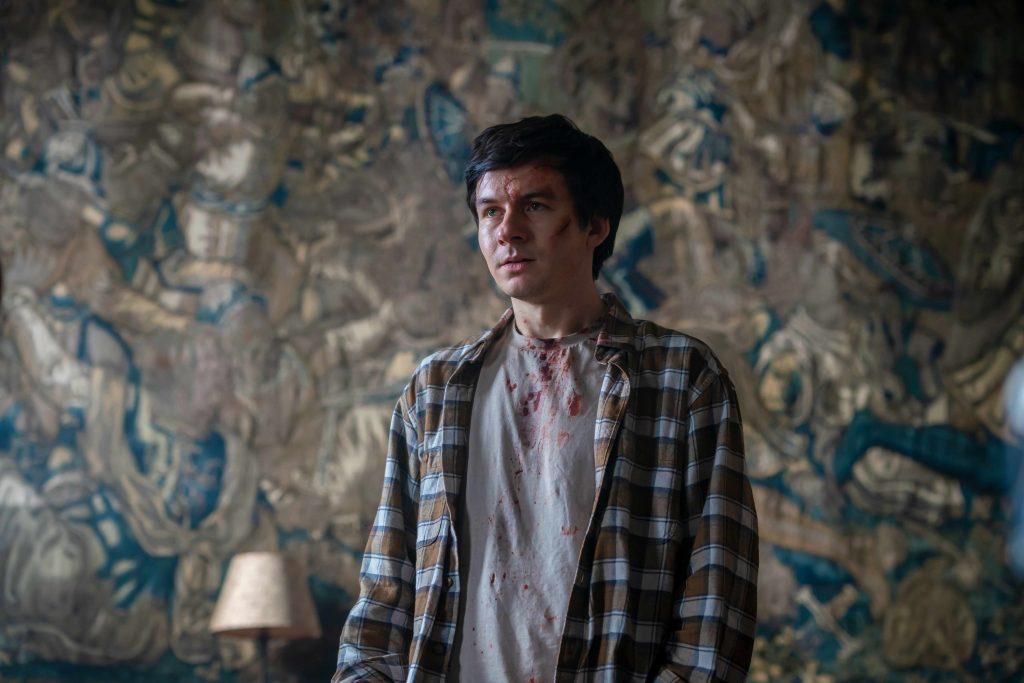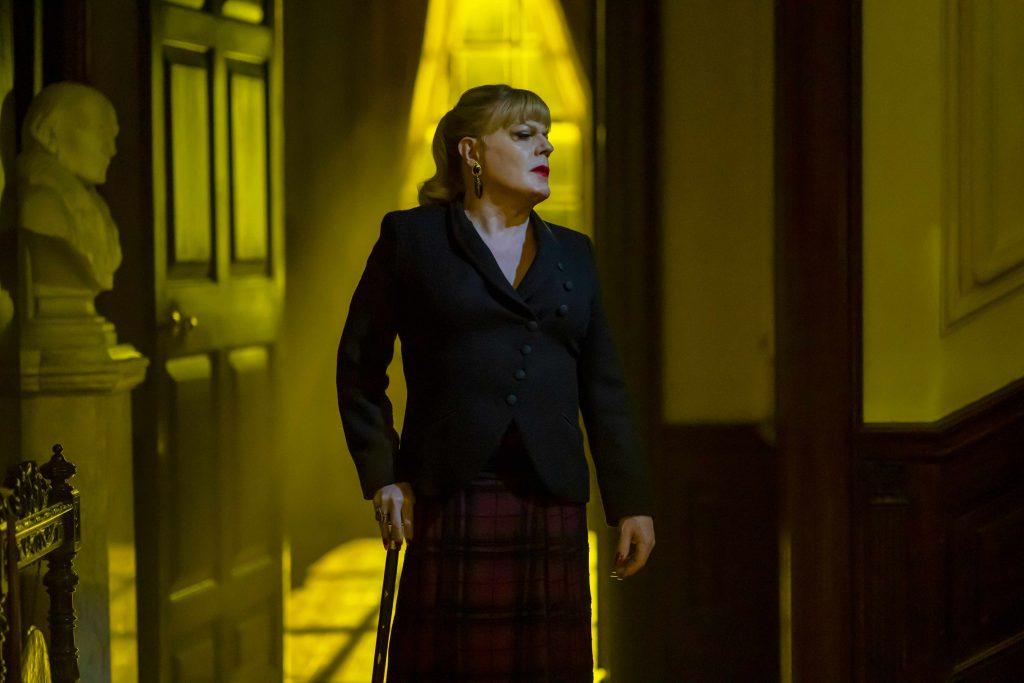We recently had the opportunity to check out Doctor Jekyll starring Eddie Izzard and see if it lives up to the hype.
*warning: minor spoilers below for Doctor Jekyll
I remember well when it was announced that Eddie Izzard would be portraying Dr. Nina Jekyll in a new adaptation of Robert Louis Stevenson’s The Strange Case of Dr. Jekyll & Mr. Hyde. The idea of this famous story receiving such a visible change in its retelling caught my imagination and I wanted to see very much how it wove its way into the story.
Doctor Jekyll, unlike previous iterations, is set in the modern day and sees Rob (Scott Chambers) obtaining a job to be the caregiver for the reclusive Dr. Nina Jekyll (Eddie Izzard). In true horror fashion, it’s clear almost from the start that something is wrong with this arrangement, but it takes almost the entire running time to break down just how twisted the story is.

The highlight of the entire film by a mile is Eddie Izzard’s performance as Nina Jekyll/Rachel Hyde. The method of switching between Jekyll and Hyde is slightly different from the original tale, and once you understand how it works, it will make you re-evaluate every last scene in the film, making you wonder: was that Nina or Rachel talking?
Scott Chambers as Rob makes the perfect “everyman” for this story. He’s suddenly plopped down into a reclusive world where almost nothing is as it seems, and he is very ill-prepared to deal with the consequences. You can’t help but feel that Rob has his back against the wall and the true tragedy of this tale is that there really was no way to change the outcome of the story.

While the story has been quite changed for the most part, the film is true to the original tale’s tragic ending. The story was created as a tragedy regarding the fate of Dr. Jekyll and it remains so. But the nature of the tragedy is so different this time. If anything, you’re going to feel the pain of the ending ten times worse than if they’d stuck to the traditional ending of the story.
One thing that the film does really well is how it makes the viewer question reality. Even as the full plot is laid out, you’re left wondering: is this real? is this really happening? Or is this all a trap for Rob? This questioning serves to pull the viewer even deeper into the story because you’re so keen to find out what’s real and what isn’t.
If there was one thing that could be changed about Doctor Jekyll, it’s that I wish we could’ve seen more of Rachel Hyde. To be sure, what we do see is terrifying enough, but I still wish we could’ve seen more where we definitely knew it was Hyde talking. It’s very possible the filmmakers thought it would be better if there was an element of doubt as to who was in control at any given time.

One other detail that might turn some viewers off is the presentation of Hyde in the film. In the original story, Hyde is revealed to be Jekyll’s evil alter ego made manifest and Hyde dies when Jekyll dies. The film starts in a similar vein, but it slowly becomes apparent that there’s a different angle to this take on Hyde. Rather than being one person’s evil “other”, there’s almost something, dare I say, supernatural about Rachel Hyde that doesn’t exist in earlier iterations. It’s the only explanation I can think of for how the story ends. It works the way the film has it play out, but some may not like the change.
In conclusion, Doctor Jekyll is a delightfully twisted update on the Jekyll and Hyde story that deserves to be remembered with the best of the horror films that Hammer has released over the years. Eddie Izzard is an absolute delight in the title role and I’d love to see more of what she could do with similar roles given the opportunity.

